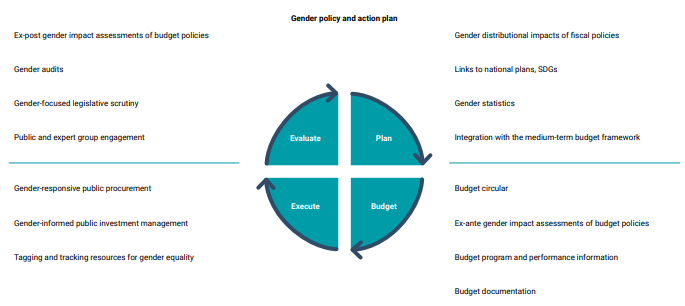 A woman attends her post in a market, Guatemala City. Guatemala. Photo: Maria Fleischmann / World Bank
A woman attends her post in a market, Guatemala City. Guatemala. Photo: Maria Fleischmann / World Bank
Despite significant progress in Latin America and the Caribbean (LAC), women in the region continue to face numerous socio-economic disparities, including limited access to education, healthcare, and economic opportunities. Young women, for instance, are still less likely than young men to graduate from science, technology, engineering and math or STEM fields and are also more likely to be unemployed. Maternal mortality rates in the region are among the highest in the world (after Africa), with an estimated 88 deaths per 100,000 live births. According to the World Bank, existing gender gaps in entrepreneurship and in the workforce lead to average income losses of 15.7 percent in the short run, and 17.2 percent in the long run, in LAC.
To address gender disparities, countries in the region have been experimenting with using public financial management (PFM) systems to plan, budget, execute, oversee, and evaluate public resources to ensure they are allocated in a way that promotes women empowerment and equality. This approach which is often referred to as gender budgeting ensures that economic policies, budgets, and expenditure decisions consider the different needs, priorities, and roles of everyone in society.
While there is no one-size-fits-all, integrating a gender frame in budgeting builds on clearly articulated gender gaps, whether between men and women or between groups of men or women (e.g., rural/urban, poor/non-poor, ethnic minorities) across different sectors (e.g., agriculture, education, health).
The selection of PFM tools varies from one government to another (see examples of tools in the graph below). A phased approach to integrating gender considerations in budgeting helps countries manage change and develop the necessary tools to link budgets with gender equality objectives.
Latin America and the Caribbean Walking the Talk: Good Practices in the Region
Mexico, for example, has one of the most developed gender budgeting frameworks globally. Countries with active initiatives, including Argentina, Guatemala, and others, are starting to integrate gender considerations into their budgets, highlighting the impact of closing gender gaps and promoting women's financial empowerment. Despite this progress, challenges remain regarding implementation, political will, and monitoring mechanisms.
How is the World Bank supporting Latin American and the Caribbean’s efforts towards gender-responsive budgeting?
Building on regional good practices, the World Bank is supporting Grenada and Saint Vincent and the Grenadines in developing a financing framework for gender equality using well-established budget performance information.
Grenada, for instance, has already taken important initial steps by publishing its first gender budget statement in 2022 on the Ministry of Finance's website. The statement outlines key national gender equality priorities across sectors: labor, education, culture, agriculture, violence, poverty reduction, leadership and decision-making, climate change, health, and poverty reduction. The statement also presents key budget measures to address the gaps identified in the national gender policy. These include collecting data on gender-based violence, strengthening response systems to sexual harassment, skills training and parenting classes for young mothers, and ICT skills programs for young girls. The Government of Grenada also plans to present sex-disaggregated data in performance information indicators of ministries and to expand the number of ministries included in gender budgeting.
Fostering gender equality entails changes in laws and policies, public and private sector activities, and in society. Yet, meaningful reforms require adequate financing and gender budgeting has the potential to contribute to creating more inclusive societies where women and men have equal access to opportunities, resources, and decision-making power.
To learn more about the state and instruments for gender-responsive budgeting in LAC, download the World Bank’s latest brief Financing for Gender Equality in Latin America and the Caribbean (English).




Join the Conversation